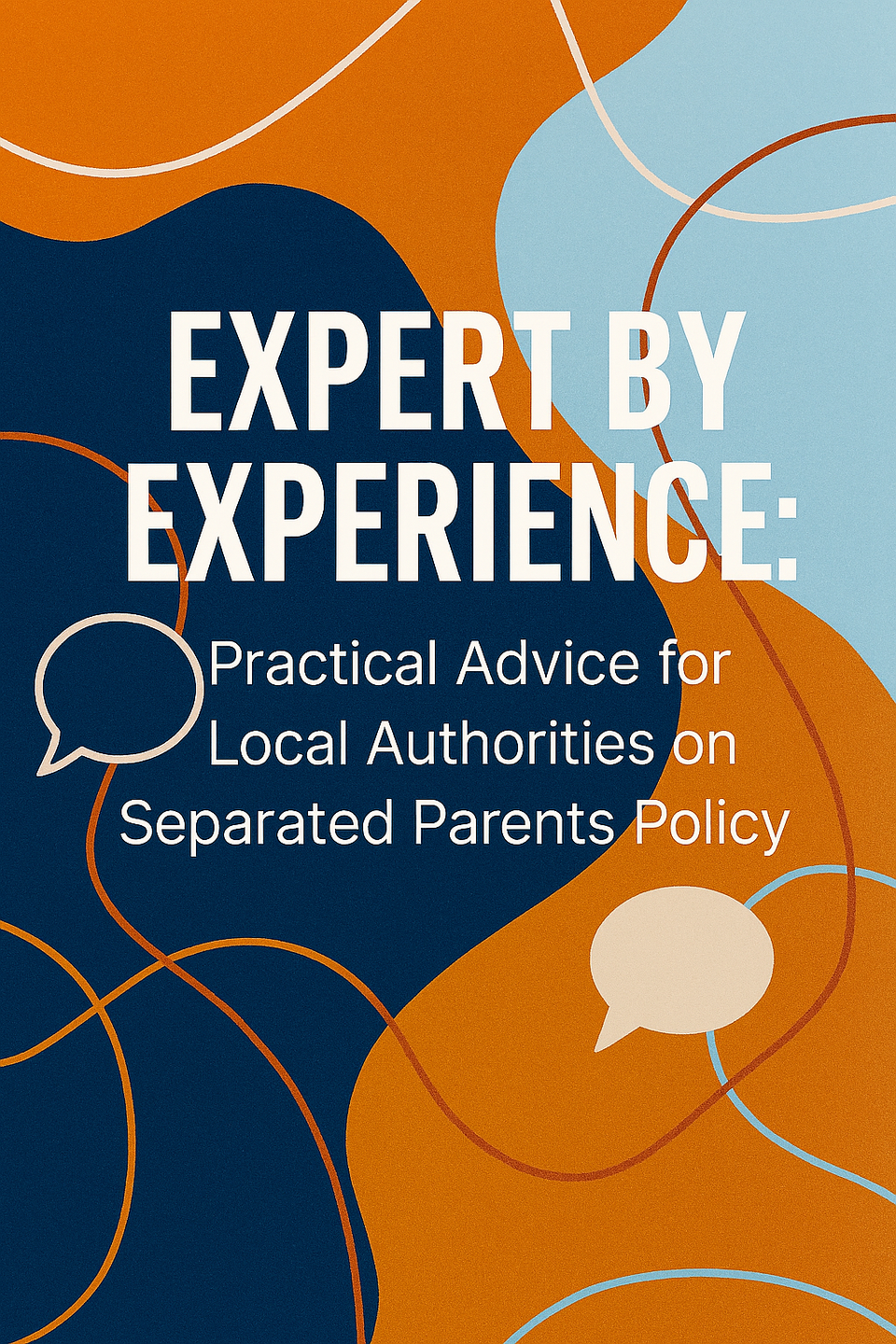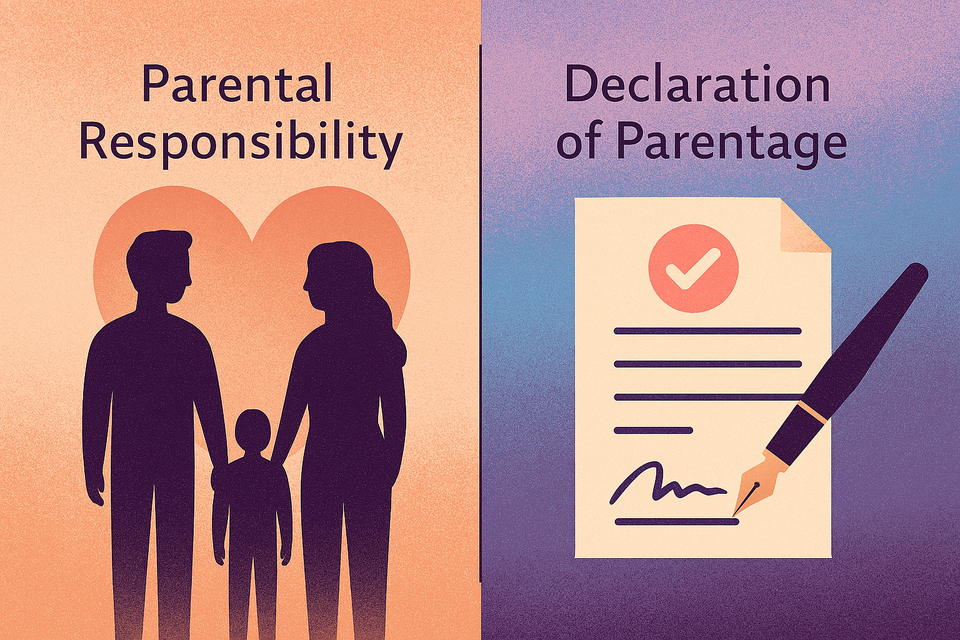The Art of (self) Advocacy.
The first in a series of posts about self-litigating at family court.

Updated: 29/04/2022
Preface
The Art of (self) Advocacy is the start of a series of posts I intend to write about my experiences self-litigating at family court. Most of the time, I have had to represent myself owing to LASPO, legal aid reforms which effectively ended legal aid for the majority of contact cases. The result of LASPO is that parents, low-income, working and silver spooned must now represent themselves, unless they can pay for a solicitor or meet extremely stringent criteria. This presents a few issues, if one parent is able to pay for a solicitor or meets the legal aid criteria, and the other parent, perhaps from a less well off background or less educated has to self-litigate, the scales of justice cannot ever be fairly balanced because one party will have representation and the other will not.
In cases where one party is not represented, that party faces an avalanche of paperwork much of which will contain legal wording, phrases and frameworks which will be unfamiliar and emotionally cold. The party self-litigating will be emotionally raw, potentially suffering from an array of mental and emotional issues and subsequently unable to rationalise in what is a combative arena.
According to Sun Tzu's "Art of War" these are battles which self-litigants should almost never, ever win given they lack the ability to lay plans to 'wage war' which in this case, we can equate to effectively representing themselves; but they also lack supplies, terrain and tactics - that is to say, an understanding of the system before them and advocacy skills.
In my case, the scale was re-balanced primarily because I had support from family and, luckily, by the second time court came around, I was actually studying Law. This combination resulted in not just contact, but being awarded primary care of both of my daughters. That said, there have been occasions when I have used solicitors because the circumstances have called for it or because funding became available, under legal aid for a specific issue.
I do not anticipate going too deep into the nitty gritty of my children's particular cases. I feel it's important to mention that here because content I have produced and made publicly available on the internet, regardless of context has been brought into those proceedings. I want to focus on advocacy, representation and the politics at play before, during and after proceedings - much of which can be compared to a RSC (Royal Shakespeare Company) performance. If you have any feedback, comments or just want to get in touch with me, you may do so via closebracket at pm dot me.
I would also not recommend publishing specific case details if you are going through the family courts. In the past, I have live streamed to Facebook when I was "stood up" for contact and tried to provide help for other self-litigants, but authorities always took a dim view and tried to present it in a negative light; so that's my first piece of advice - do not jeopardise your case by trying to publicise your case. Do research and present an adult argument instead.
Is Court Worth It?
When I first heard about court, I was very young. If I recall correctly, I was around 4/5. My father and maternal grandmother went to court about money which had gone missing from a bank account. A bank account in my name as it happened. The funds had been transferred and used for another purpose. My father won at court, but the subsequent side effect was an almost nuclear breakdown of family relationships for many years to come.
You might be wondering what significance that story has to advocacy, representation and the politics of Family Courts. I'd like you to consider whether it is worth going to court. Human relationships are complicated, Family relationships are more complicated and extremely difficult to rebuild once damaged or broken. In the example above, the sum moved from my child account was a mere £100, however the loss of childhood memories, experiences, family events and so on is priceless - and that's without mentioning the effect of being caught up in adult conflict.
While you may be hurting or have a heart full of revenge, you must ask yourself whether court will solve your issues. In many cases, mediation would be better or, even legally required before court proceedings can take place. Court should be a last resort, a very last resort and even if you "win".
If you click the link on "win," you'll view a scene from the Social Network film; it's important because the Sean Parker character is explaining how record companies 'won' in court but ultimately 'lost' their campaign against Napster and streaming.
The same principle applies in every court scenario. Whilst you might take your grievance to court, the cost might be more than financial. It could damage relationships, result in irrevocable psychological and emotional harm or worse, you may end up winning the battle and losing the larger 'war' at hand.
All that said. If court is on the cards, The Art of (self) Advocacy, below, will help improve your chances of persuading the judge of your case.
The Art of (self) Advocacy
Contrary to popular belief, courts are not about justice. After all, what is justice? British courts always produce a winner and a loser because they're adversarial; therefore one party will always be aggrieved and feel robbed of their justice.
Courts are about putting on a good show. This is perhaps more on display at criminal courts, where clinging onto the vestibules of traditional dress and pomp remains popular. Coupled with the outdated traditions, high fees, regal decor and it is easy to compare such places, and the debates within them, to shakespearian plays at fancy theatres.
Of course, you don't have to take my word for it. You can visit criminal courts and sit in the public gallery. I'd advise doing so if you are trying to self-litigate, whilst the criminal courts are very different to the civil family courts, you will get a taste of how good barristers and solicitors manipulate, twist and verbally skewer defendants, witnesses and alleged victims alike. If you are interested in visiting, you can find the listings for your local area here.
Now we need to have a very frank talk. If you are a LIP (Litigant in Person), you are likely to come up against professional advocates. Advocacy doesn't mean just being an encyclopaedia of legal knowledge, they are professional speakers, communicators and negotiators. Referring back to the "win" scenario above, it's very possible you might be led to believe you're getting a good deal when you're actually being led down the path to destruction. As one award winning solicitor once told me "you should be scared, very scared" - and they were right.
Solicitors love winning. They do not and will not care about the morality of the case, their duty is to their client and as long as they do not breach their professional standards or duties, it is irrelevant whether the 'right' or 'just' outcome is reached.
The important point to keep in mind is that solicitors have a professional code of conduct. The code of conduct ensures that solicitors cannot advance their clients case in a manner that they know to be untrue, for instance, if their client, lets say for example, Bill Clinton, states "I had sexual relations with that woman" who then goes on to state in public "I did not have sexual relations with that woman", the advocate must advance the case using language that portrays what the client has told them privately. There are other restrictions of course, so I would advise reading the full code of conduct; the main point I want to make here is that whilst it will be scary facing a solicitor as a LIP, you should pay very close attention to the language they use because it may reveal that their case is not as strong as you believe it is.
For litigants-in-person, must rely on the Art of Advocacy, essentially turning themselves into the star of the show - persuading the judge of the validity of their position with rational argument, fair mindedness, appropriate dress and adult behaviour. I'd also recommend any budding LIP reads Meditations which promotes Stoic philosophy.
1. Rational Argument
Following a breakup, maintaining rationality can be extremely difficult. In my case, I was missing important milestones in my daughters lives and my attempts to resolve issues outside of court were ignored which resulted in further clouded judgement because of the depressive slump which ensued. The lack of rationality during such an emotionally unbalanced time means that self-litigants can fall into the trap of making poor arguments, or becoming embroiled in 'he said, she said' and using the courts as a coping mechanism.
In order to avoid this, litigants-in-person must realise that court is not about them, their relationship or the issues within it, at least if the court is dealing with children and contact. It is therefore important to ensure that arguments brought to court are rational and concise. Argument A is a great example:
Argument A: "Good morning Sir, I have brought these matters to the courts attention as the Respondent and I have been unable to agree on contact arrangements and mediation has not been successful. It is my intention to seek contact with my son, Adam, who is 2. I have played a role in his life since he was born and it is within Adams interest that contact is maintained."
Argument A explains to the District Judge that contact is sought with the child and that the applicant parent has always been involved. It also gives oversight of actions already taken in order to achieve contact, this sets up the respondent, or their representative to be quizzed on why contact could not be established. Eagle eyed readers will also have spotted that the District Judge has been addressed as 'Sir', as is customary (unless the DJ is a lady, then Madam will suffice). No blame is placed on the respondent either which is especially diplomatic as it then falls to the respondent or their advocate to begin the blame game - if they feel so inclined.
A poorer argument can be seen in Argument B.
Argument B: "Morning, basically, she stopped contact because we had an argument about x, y and z.*I said she shouldn't be involved in my private life and then all this started. I'm a great dad, just want to see Adam"
Argument B is the exact opposite of A. The respondent begins on an informal basis with the DJ and immediately starts the blame game. As outlined previously, this could be seen as a mechanism for trying to cope with mental and emotional issues. A few of the ways I coped with these was keeping a hand written journal, throwing myself into education, solving puzzles, reading, anti-depressants and, for a brief period, counselling. Now, I bike/walk and use the gym. I've also joined a local football group.
LIPs should ensure they stick to arguments such as A throughout their case. It would also benefit them to highlight any strategies they are using to improve their parenting, mental health or personal development as this demonstrates that they are not getting caught up in pettiness.
2. Fair Mindedness
This is a fairly simple one and we can sum it up as follows:
Don't go to court demanding the earth. Go with a fair plan and a few areas you would be willing to compromise and most of all, be humble.
Remember that the case is not about you or what you perceive that your former partner has done wrong, unless there are very serious concerns and risks of abuse/violence.
Courts appreciate co-operation and compromise, not only because it's within the interests of resolving the case at hand but because it means they can improve their statistics - getting your case closed and out of the door, faster.
3. Appropriate Dress
Much like a Shakespearean actor or courtier at the palace of Versailles, each visitor to Family court should expect to dress for their part. This does not mean family court is an opportunity to show off the latest, high priced accessories or bringing your sword to duel. It means dressing responsibly, in reasonably priced clothing and looking approachable.
Gentleman should be well groomed, have matching shoes/belt and wear a shirt. Tie is optional. On the various times I have visited court, I have worn jeans, both for comfort and because I never usually wear anything else. To pretend otherwise would be false. I would expect to see Ladies in similarly toned down attire, without heels, jewellery or excessive makeup/perfume.
The reason for dressing appropriately is that wearing a £200 pair of trainers could lessen the impact of arguments to the judge, especially when for example, pleading poverty. Likewise, not dressing up, if your dress doesn't usually include smartish attire, could infer that you are not serious about proceedings and less able to care for children.
4. Adult Behaviour
If it hasn't already been made clear enough, attending court, with or without a solicitor means facing extreme scrutiny by court staff, opposition advocates and a District Judge. Everything said, worn, written, every movement, voice tone and breath will be watched, monitored and feedback given to the relevant people.
Under such conditions, a prudent litigant in person would do well to refrain from conducting themselves inappropriately. For example, if the respondent is likely to antagonise, provoke or cause outbursts, be responsible and request separate seating rooms or ask the attendant to nudge you when the hearing begins. By communicating with staff and distracting yourself with music, a book, a podcast or whatever it is, a certain level of maturity has been shown and will be noted. Likewise, during the hearing, refrain from making lewd, crude, sly, insulting, silly or immature remarks. Save them until afterwards, when in the pub or on the phone to family.
Most importantly though, rise to the occasion when there is the opportunity to be the bigger person. That's what adults do - put petty issues behind them, forget grudges and move forward.
5. Research
As the adage goes, if you fail to prepare, you prepare to fail. Conducting some preparatory research whilst self-litigating will be required. Most commonly, LIPs are directed to Citizens Advice or advised to speak to a solicitor because "you can get 10 minutes free".
Those are good options, but ultimately, LIPs need to be prepared for the eventually when they go to court and are facing the reality of being sat in front of the judge. When I was in that position, I found it helpful to know both the law in respect to family matters but also in respect to my own rights as a British Citizen. This was particularly handy, for example, when it was advanced that certain phrases or language was unacceptable; or that I had bad character for drinking alcohol.
My advice would be, firstly, to read a broad range of books written by solicitors and barristers, for example:
- The Secret Barrister - Stories of the Law and How It's Broken
- Andrew Bainham - Children and Their Families: Contact, Rights and Welfare
- Celia Conrad - Fathers Matter: A Guide to Contact on Separation and Divorce
- Frances Judd - Contact: The New Deal
- Jonathan Mitchell - Children Act Private Law Proceedings: A Handbook
The above books give a good overview of the legal system and legislation around child matters. In particular, The Secret Barrister gives a 'behind the scenes' look into the legal system from a barrister's view - albeit, the criminal courts - but the principle is the same. The other books mostly reiterate the legislation in all manner of family matters and give advice about how to approach court. As always, it is most appropriate to consider multiple sources before deciding the best route.
Secondly, it would be appropriate to head over to the Government Legislation Website to see if legislation has changed or there are elements which were not covered in the books mentioned above. One change that I can think of which may not be covered (because of the publication date of the books) is the automatic inclusion of children as victims of domestic abuse. This is important because it could mean that there are safeguarding concerns to consider in a contact case.
For those whose cases fall into that category, it is worth looking into practice direction 12J because you will encounter it.
Thirdly, and perhaps not independent of bias, I would advise keeping tabs on a repository of resources for research that I've been putting together. It includes articles from the news, ONS data, legal cases, child protection information and much more. You can access the resources via this website which is more user friendly. Or, if like me, you're a bit of a computer boffin, you can try this link and contribute to the markdown code.
Conclusion
That concludes this part of The Art of (self) Advocacy. I hope it's given some helpful tips and tricks and the resources have been helpful. The next instalment will enhance and further points in this part and I hope to have it written soon. If there's something that you feel could be included, please do feel free to get in touch with me via email.



